Learn : Health & Wellness
Why is My Dog Losing Hair Around Their Eyes?
As you probably know all too well, it’s perfectly normal for your furry friend to shed on a regular basis (just ask your couch cushions for verification). But a dog losing a noticeable amount of hair around his eyes may be suffering from an underlying health condition.
Here are a few possible reasons your dog might be losing hair around their eyes:
An allergic reaction
Dogs can suffer from allergies, just like humans. If your dog is suffering from an allergy, his eyes might become swollen, red or itchy — just like your eyes when you’re around too much pollen, for instance. When your dog starts itching his eyes a lot, the contact dermabrasion can cause him to start losing hair around his eyes. Dog allergies can vary based on the time of year and can be caused by a variety of factors such as food allergies or other environmental allergens.
Speak to your veterinarian to help figure out what your dog is allergic to and what you can do to help alleviate symptoms. You may want to try an elimination diet if you suspect food allergies.
Pink eye
Like humans, dogs can suffer from pink eye (conjunctivitis), which can cause excess itching and ultimately hair loss around your dog’s eyes. If you notice puffy, watery eyes, redness or itching, take your dog to the vet.
Fleas
Flea bites can cause extreme itchiness for your dog in multiple areas of his body, and the face is no exception. Talk with your vet about finding a flea medication that will help kill fleas and prevent future infestations.
Ringworm
Ringworm is a type of fungal infection that can cause hair loss in a ring shape, particularly around a dog’s eyes. It’s very contagious and can spread to humans or other pets, so make sure you take your dog to the vet to get treated if you suspect ringworm. One telltale sign of ringworm is that it’s usually not itchy, which may help you distinguish it from pink eye or allergies.
Cushing’s Disease
Cushing’s Disease can cause hair loss in dogs, and unfortunately is a chronic condition that requires long-term treatment. Besides hair loss, another sign of Cushing’s Disease is excessive thirst or hunger. If you suspect Cushing’s, don’t panic — with help from your vet and proper care, your dog can still live a long, happy life.
When to talk to the vet
If your dog loses hair around their eyes very suddenly, or you begin to notice affiliated ailments like loss of appetite or fatigue, we recommend you set up an appointment with your vet as soon as you can. Serious issues like Cushing’s Disease simply can’t go untreated.
You’re always better safe than sorry, so even if the hair loss is gradual and relatively pain-free, it never hurts to make a call to the professionals.


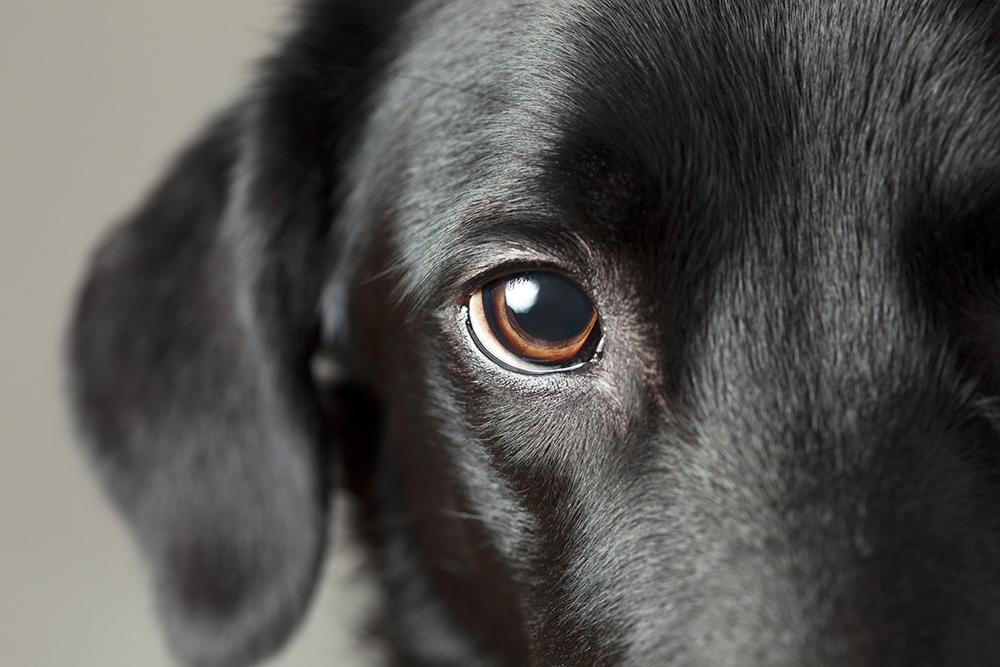
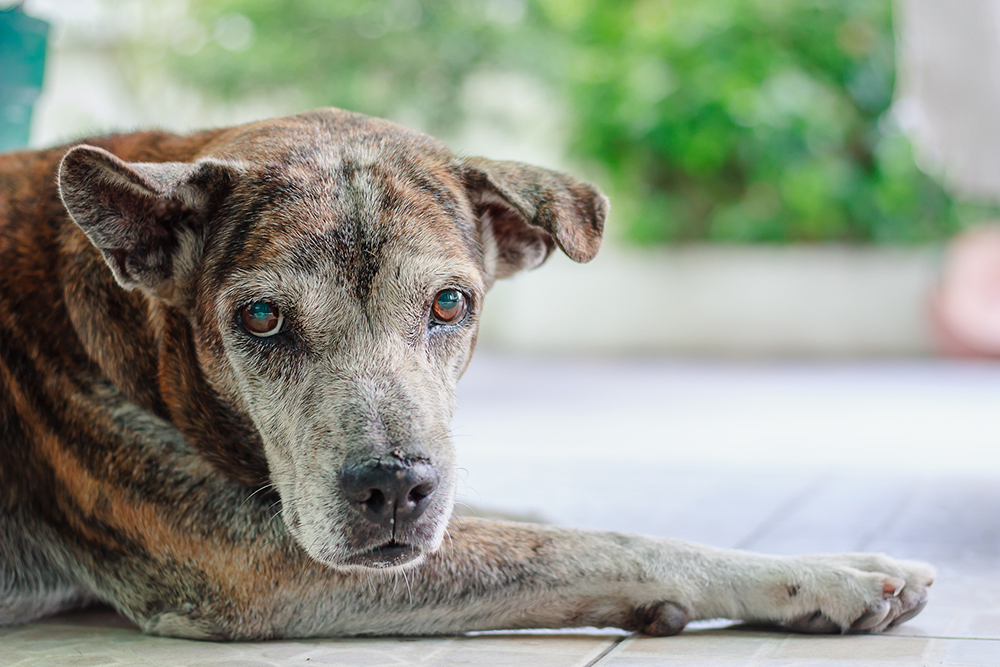 Cataracts in Dogs
Cataracts in Dogs
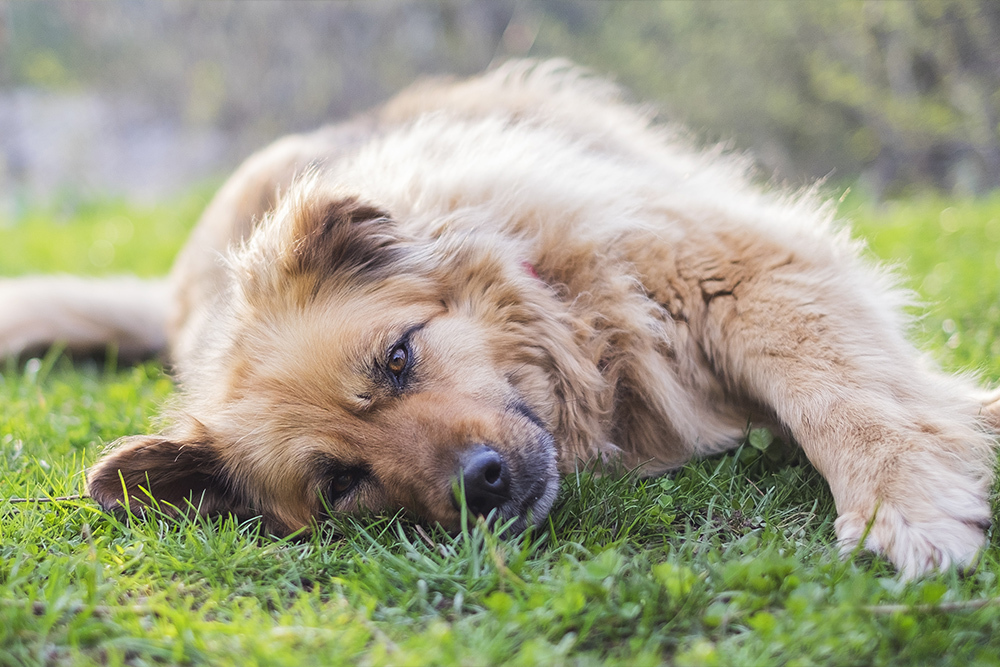 Constipation In Dogs
Constipation In Dogs
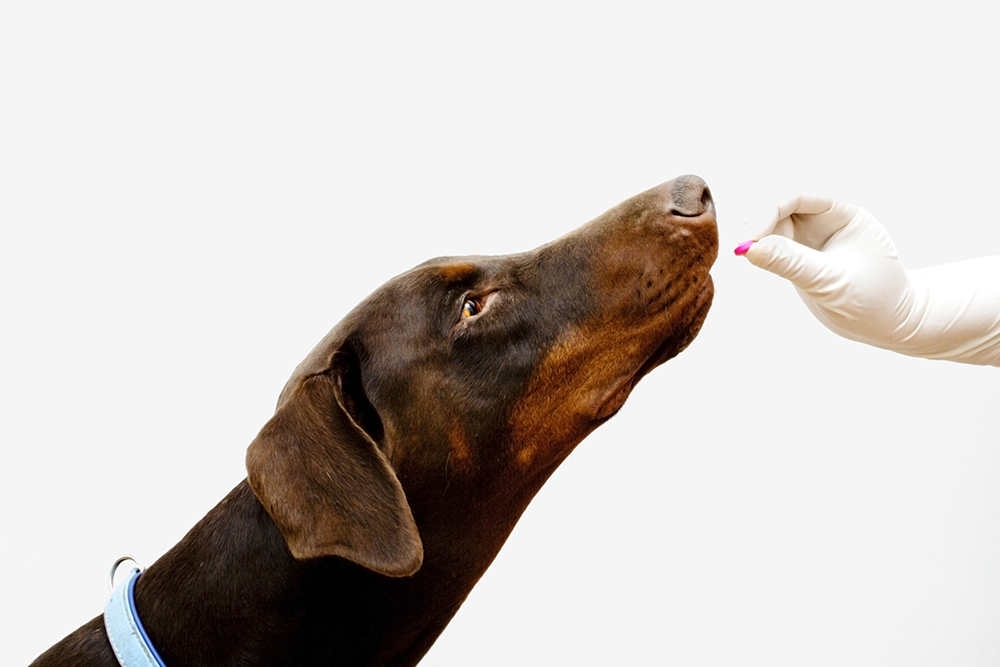 Doxycycline for Dogs
Doxycycline for Dogs
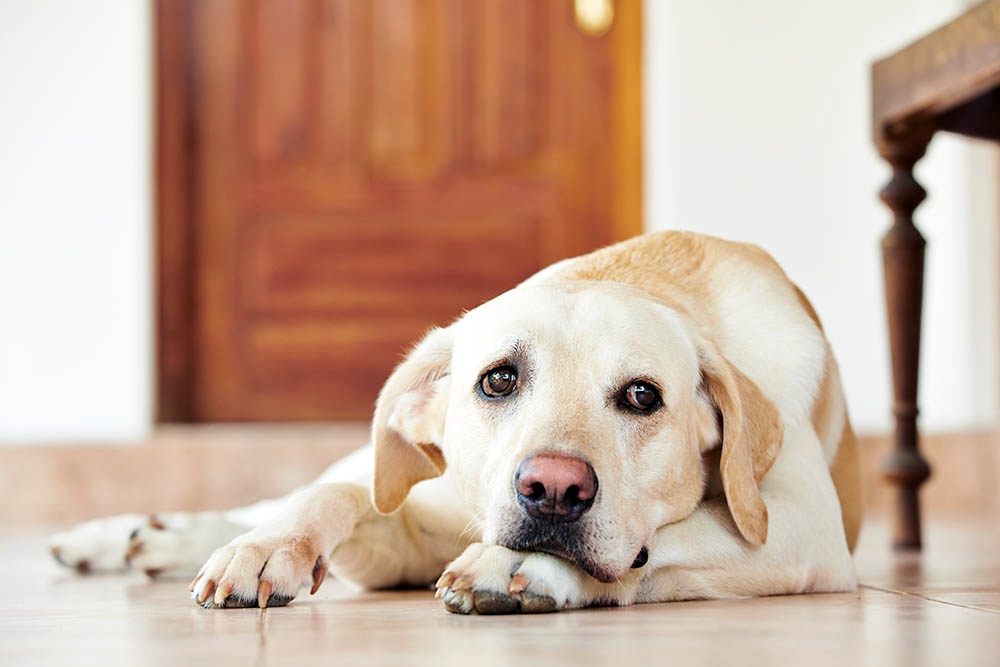 Lipomas in Dogs: Everything You Need to Know
Lipomas in Dogs: Everything You Need to Know
 Shrinking Canine Lipomas
Shrinking Canine Lipomas
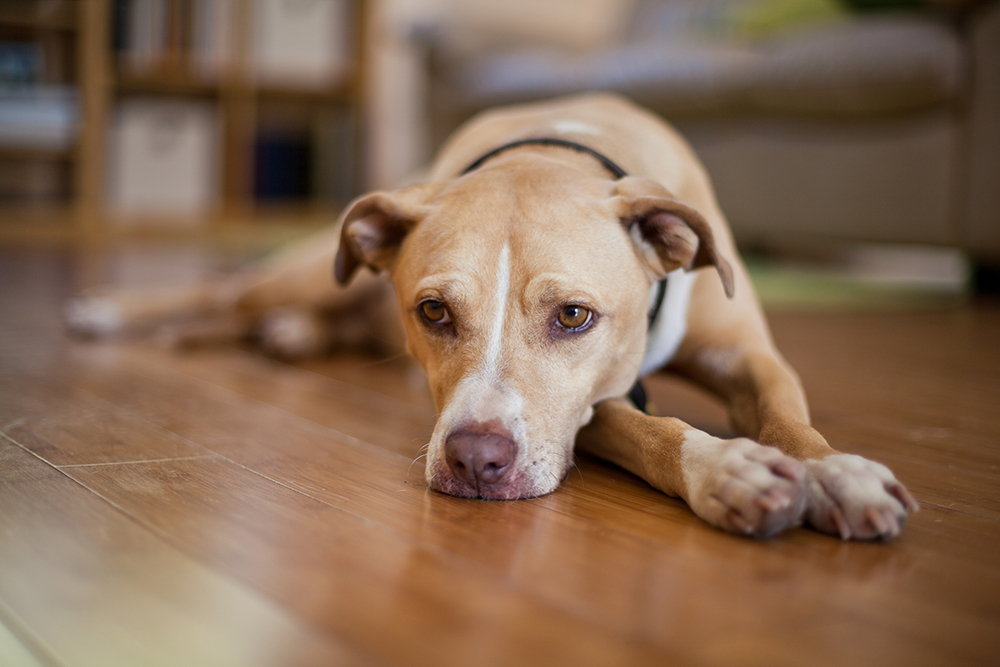 How to Induce Vomiting in Dogs
How to Induce Vomiting in Dogs